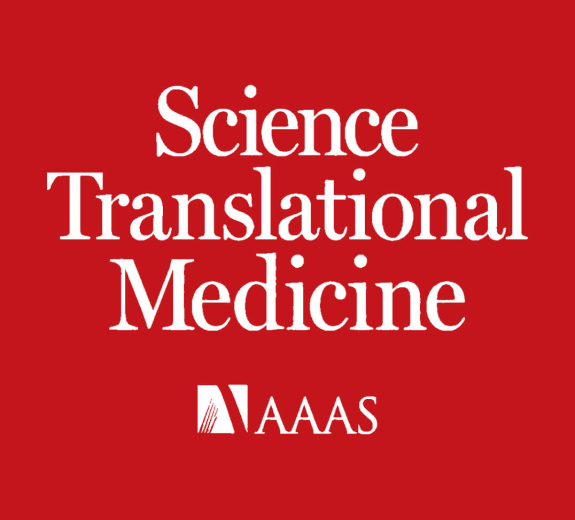
GentiBio Launches with $20M Seed Funding from OrbiMed, Novartis Venture Fund and RA Capital Management, L.P. to Develop Engineered Regulatory T cells to Deliver Immune Tolerizing Therapies for Autoimmune and Inflammatory Diseases
GentiBio, Inc., an emerging biotherapeutics company developing engineered regulatory T cells (EngTregs) programmed to treat autoimmune, alloimmune, autoinflammatory, and allergic diseases, announced today it has entered into exclusive licensing partnerships and sponsored research collaborations with Seattle Children’s Research Institute (SCRI), Benaroya Research Institute at Virginia Mason (BRI), and MIGAL Galilee Research Institute (MIGAL) to advance the company’s unique immune tolerance platform. GentiBio was co-founded by a team of scientific pioneers from Seattle Children’s, BRI and MIGAL to restore immune tolerance using Treg cell therapy engineered with novel technologies that direct potent EngTregs to specific tissues damaged by abnormal immune responses. OrbiMed Israel, OrbiMed U.S., Novartis Venture Fund and RA Capital led the seed financing for GentiBio in June 2020.
Under the terms of the licensing agreements, Seattle Children’s, BRI and MIGAL will exclusively license unique technologies to GentiBio that overcome many of the current limitations of Tregs therapeutics, including rarity and plasticity of endogenous Tregs populations and the need for robust IL-2 signaling support. Additionally, GentiBio’s platform will enable the scaled production of robust autologous and allogeneic EngTregs cell therapy products that are antigen specific and tunable. The platform may also have the potential to accelerate the development of new therapeutics to treat and cure many diseases, including autoimmune diseases that impact millions of patients globally and 23 million people in the U.S.
“GentiBio is focused on addressing all of the technical bottlenecks that have throttled Treg therapeutics, and we are thrilled to exclusively in-license a portfolio of unprecedented breadth from Seattle Children’s and Benaroya Research Institute in the U.S. and MIGAL Galilee Research Institute in Israel,” said Adel Nada, M.D., Co-founder and Chief Executive Officer of GentiBio. “The technologies licensed from these premier research institutions are mature and well-differentiated, and will be further optimized in collaboration with the scientific teams that discovered them to advance novel and potent therapeutics with the potential to treat and cure serious autoimmune and inflammatory diseases.”
“Tregs are rare cells within the immune system and current therapies that source Tregs cells from the blood stream can be costly and cumbersome. In contrast, Seattle Children’s unique technology enables the generation of engineered regulatory T cells, or EngTregs, from the more abundant CD4+ cell population, addressing a critical manufacturing shortcoming for this novel treatment,” said David Rawlings, M.D., Director, Center for Immunity and Immunotherapies, Seattle Children’s Research Institute and Scientific Co-Founder and Senior Scientific Advisor of GentiBio. Rawlings also serves as Chief of the Division of Immunology at Seattle Children’s and is a professor of pediatrics and immunology at the University of Washington School of Medicine.
“This partnership with GentiBio is an important step forward in identifying and improving novel treatments for autoimmune diseases—a key goal of the Benaroya Research Institute. Currently, the majority of available treatments indiscriminately suppress the immune system, leaving the body vulnerable to infections. EngTregs endowed with antigen specific moieties can selectively restrict inflammation temporally and spatially in specific tissues where it’s beneficial,” said Jane Buckner, M.D., President of BRI and Scientific Co-Founder and Scientific Advisory Board member of GentiBio.
Rawlings and Buckner led the team of researchers at Seattle Children’s and BRI that published a study in Science Translational Medicine in June 2020 describing this novel gene-editing strategy for FOXP3 expression in CD4+ T cells.
“At MIGAL, we believe international collaboration is necessary to drive novel therapies. Our team brings in a unique and deep expertise in synthetic immunology, starting from the first invention of T-cell chimeric antigen receptors (CAR Ts) in 1989. We are excited to team with GentiBio to develop unique breakthrough treatments that are wide-ranging in their impact, extending the reach of GentiBio to unique autoinflammation targets and enabling allogeneic engineering of Tregs,” said Prof. Gidi Gross, Head, Immunology Lab, MIGAL and Scientific Co-Founder and Scientific Advisory Board member of GentiBio.


